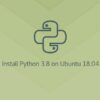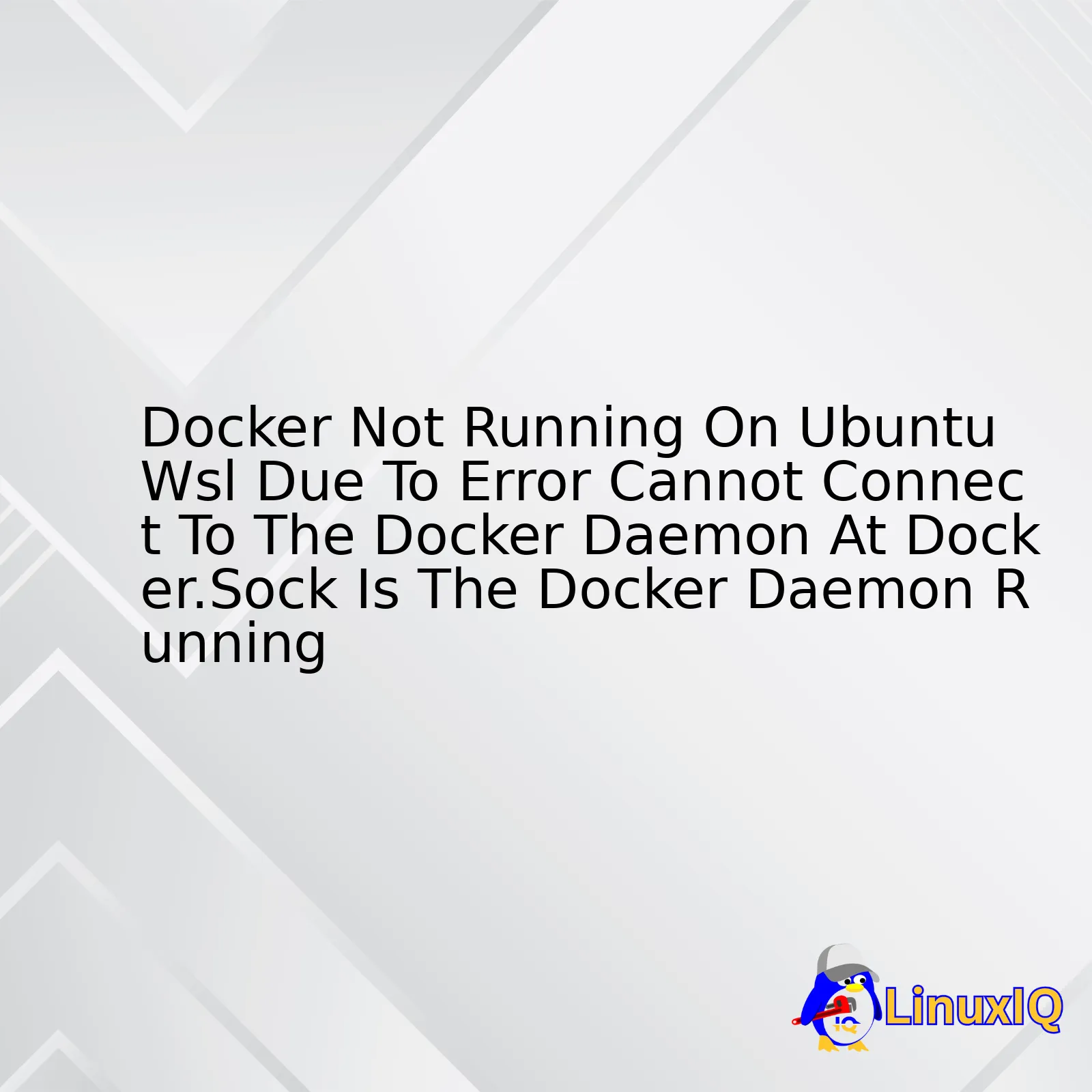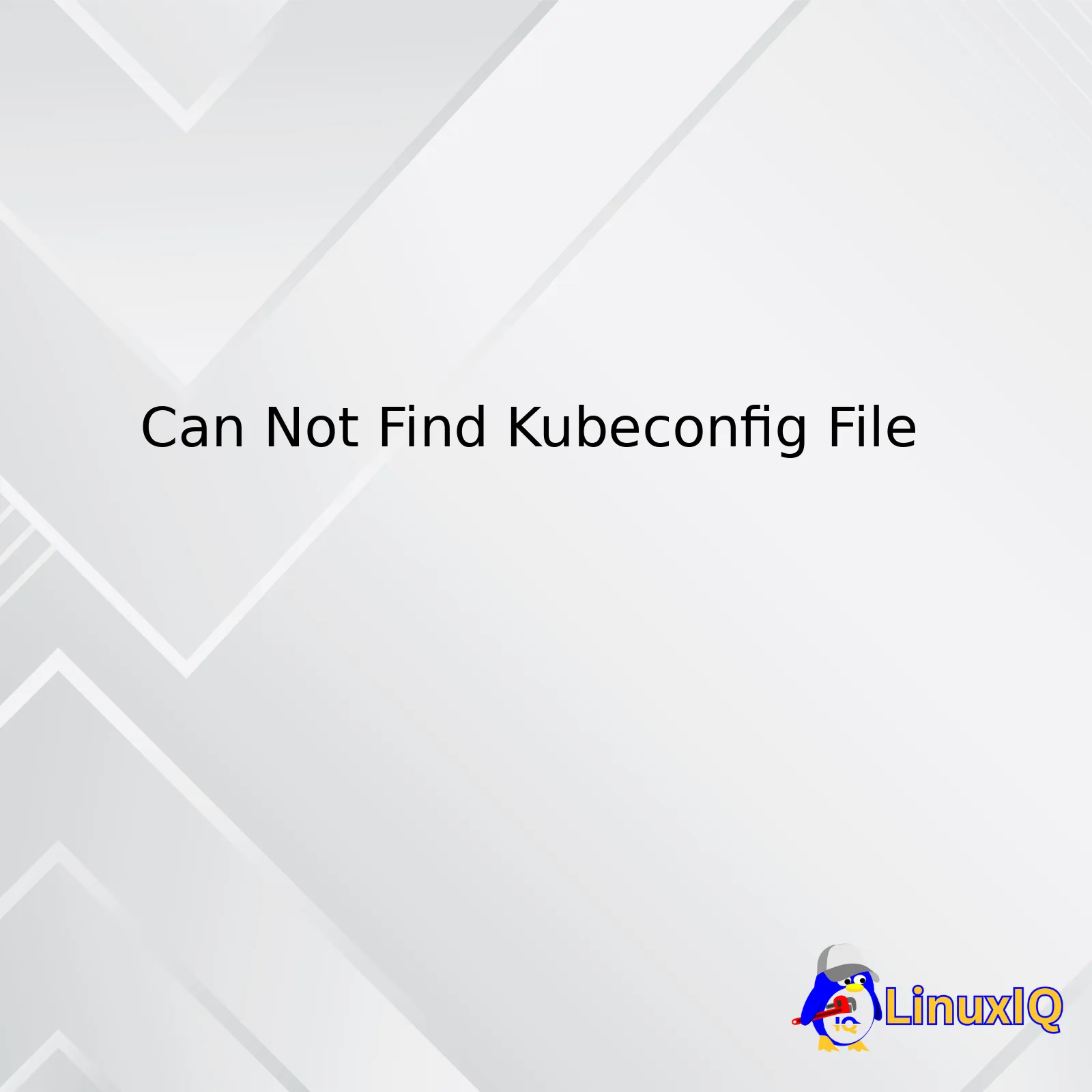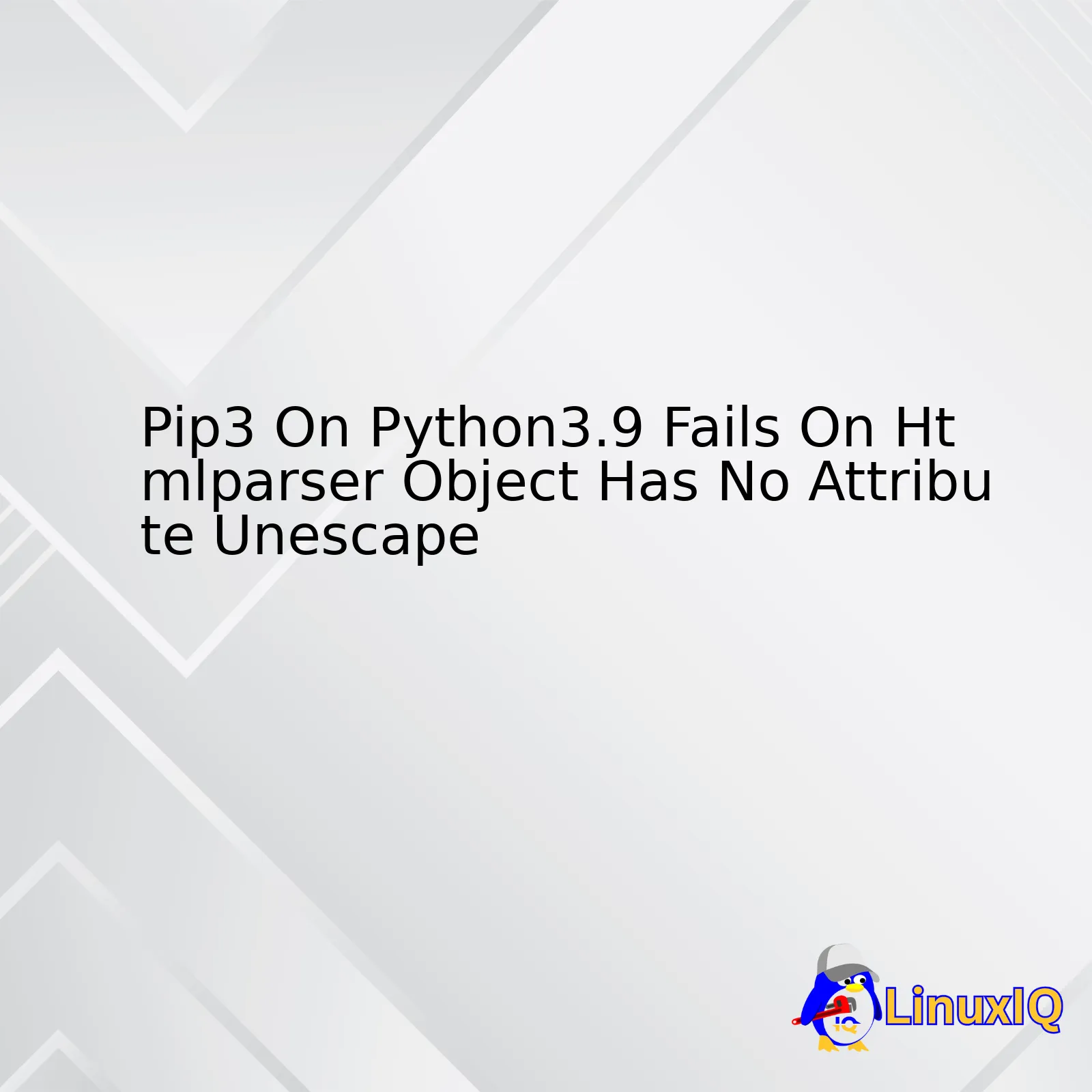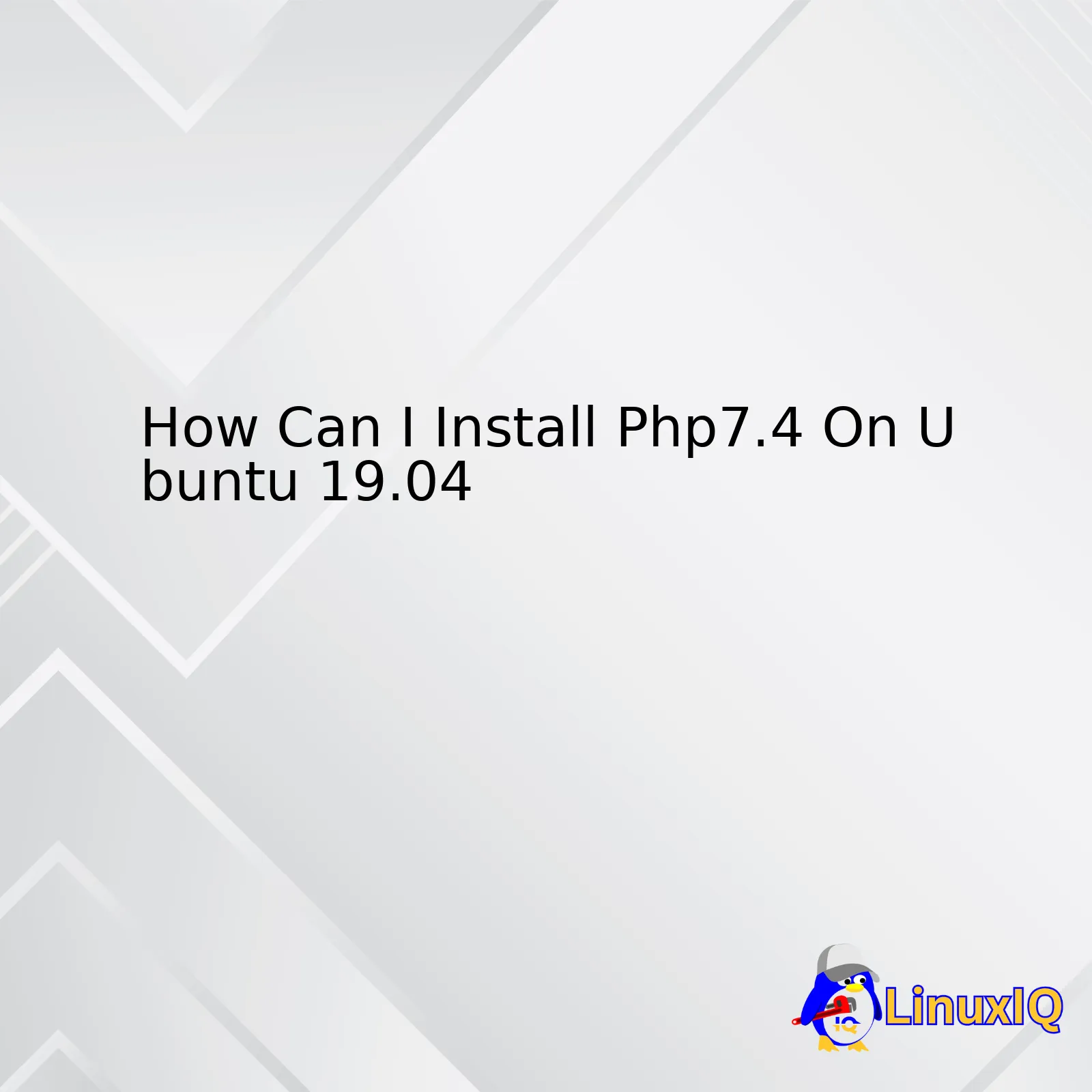
Before we dive into the steps, let’s summarize it:
| Steps | Description |
|---|---|
| Add Ondřej Surý PPA repository | You begin by adding a PPA repository. It contains updated PHP packages. |
| Update System Packages | For the system to recognize newly added repositories, it needs to update its package list. |
| Install PHP7.4 | This is where you finally install the PHP7.4 on your system using apt install command. |
| Verify Installation | Check the installed PHP version to verify the installation was successful. |
Now, let’s proceed with a detailed explanation over these steps,
The first step is adding the Ondřej Surý PPA repository. The reason behind this is that it has a more updated PHP version compared to what’s available in Ubuntu default repositories. You can add the repository by running the following command:
sudo add-apt-repository ppa:ondrej/php
Next, you need to update your system packages so that it can recognize this newly added repository. Run this command:
sudo apt-get update
After the update, install PHP7.4 using the apt install command. Apt is a package handling utility for Debian based systems like Ubuntu. Run the command:
sudo apt-get install php7.4
Finally, once the installation is complete, verify if PHP7.4 has been successfully installed. You can do this by checking the installed PHP version with the command:
php -v
Once done, your terminal would display the current PHP version which should be PHP7.4. These steps, when followed correctly, will allow you to install PHP7.4 on Ubuntu 19.04 effectively.
Elaborating further, PHP is a widely-used open source language especially suited for web development and can be embedded into HTML, MySQL, JavaScript or CSS, thus understanding its installation process and usability can potentially boost the performance and speed of your web pages.
More info at: php.netSure, let’s delve right into it.
The importance of PHP7.4 cannot be understated when focusing on Ubuntu 19.04. If you’re working with web development or managing servers, updating your system to this new version is a crucial step to reap benefits such as:
– **Performance Enhancement**: PHP7.4 is far faster than its previous versions, meaning your websites will load at a significantly faster rate (source).
– **New Features**: With the introduction of typed properties, arrow functions, null coalescing assignment operators, and more, your coding productivity can significantly increase.
– **Security Improvements**: PHP7.4 comes bundled with improved security features which are integral for keeping your web applications secure (source).
Now, let’s get to installing PHP7.4 on Ubuntu 19.04:
1. Update Package List
You’ll want to ensure that your server is fully up-to-date before proceeding with the installation. Start by updating the package list using the following command:
sudo apt update
2. Install Software Properties Common
Then, install the software-properties-common package:
sudo apt install software-properties-common
3. Add Ondřej Surý PPA
Ondřej Surý maintains a dedicated personal package archive (PPA) with all major PHP versions. This allows us to easily install PHP 7.4 on our Ubuntu system without any issues.
sudo add-apt-repository ppa:ondrej/php sudo apt update
4. Install PHP 7.4
With the above steps completed, you can now install PHP 7.4:
sudo apt install php7.4
After executing these commands, PHP 7.4 should now be installed on your Ubuntu 19.04 system. Use the following command to verify your installation:
php -v
If everything has been set up correctly, the version information displayed should match the one we’ve just installed – PHP 7.4.
For ease of use, the `
| Step | Action | Command |
|---|---|---|
| 1 | Update Package List |
sudo apt update |
| 2 | Install Software Properties Common |
sudo apt install software-properties-common |
| 3 | Add Ondřej Surý PPA |
sudo add-apt-repository ppa:ondrej/php |
| 4 | Install PHP 7.4 |
sudo apt install php7.4 |
| 5 | Verify Installation |
php -v |
These enumerated points showcase both the significance of upgrading to PHP7.4 on Ubuntu 19.04 and how it can be accomplished. By leveraging advancements in performance, incorporating new features for flexibility, and buttressing security aspects, PHP7.4 presents as an attractive proposition. Furthermore, with clear instructions and command lines presented, the installation process becomes effortlessly manageable, paving the way for optimized programming practices. Do note that transitioning further to PHP8 should also be on your radar given its monumental improvement over PHP7.4 (source).The process of setting up PHP7.4 on your Ubuntu 19.04 system can be broken down into a series of simple steps, centered around the apt package manager and a few terminal commands.
Step 1: Update Package Manager
You will want to start with making sure you have the latest versions of all your current packages. This can be accomplished with a small suite of terminal commands:
sudo apt update
sudo apt upgrade
This will sync the package index files from their sources and then smartly upgrade your system’s packages.
Step 2: Add Software Repository
Next, we add a repository for PHP by using the following command:
sudo apt-add-repository ppa:ondrej/php
Ondřej Surý is a Debian PHP Maintainer and his repository has the latest builds of PHP. So adding this to your system helps in fetching the latest version of PHP.
Step 3: Installing PHP7.4
Once done, per our requirement, you can now install PHP7.4.
sudo apt install php7.4
This command will install PHP7.4 on your Ubuntu 19.04 system.
Additional Tools:
We may also want some additional tools and packages that help PHP be more versatile, such as MySQL support and others,
Such systems can be installed with this command:
sudo apt install php7.4-mysql php7.4-gd php7.4-xml php7.4-json php7.4-curl php7.4-mbstring
This will set you up with full PHP functionality on your server.
Step 4: Verify PHP Installation
In the last step, after a successful installation of PHP7.4 on your system, you can verify the installed version of PHP using the php -v command.
php -v
And with that, you have successfully installed PHP7.4 on your Ubuntu 19.04 system! If any updates come out, they can be fetched with the “apt upgrade” command thanks to the repository we added.
This approach is both systematic and easy-to-follow if you’re familiar with Ubuntu’s Terminal interface, which allows coders and developers to control every aspect of their system. For beginners or those interested in mastering PHP over on Ubuntu 19.04, I recommend diving deeper into learning PHP fundamentals. Learning how these installation and configuration processes work can give a clearer insight into coding prowess.
While installing different versions, substitute ‘7.4’ in the above commands with your required version. Or check multiple PHP versions availability from Ondřej Surý repository.
| Terminal Command | Function |
| Sudo apt update | update package list |
| Sudo apt upgrade | upgrade installed packages |
| Sudo apt-add-repository ppa:ondrej/php | Add PHP repository |
| Sudo apt install php7.4 | Install PHP7.4 |
| Sudo apt install php7.4-mysql php7.4-gd php7.4-xml php7.4-json php7.4-curl php7.4-mbstring | Install additional PHP packages |
| php -v | Check installed PHP version |
Whilst installing PHP 7.4 on Ubuntu 19.04, you may encounter a few common issues that can stall or halt the installation process entirely. This guide delineates upon the prominent problems and provides solutions to help you navigate through these difficulties effectively.
1. Missing Packages
In some cases, essential packages might not be available in the default repository of Ubuntu 19.04 for PHP 7.4 installation. If it’s happening with you, consider adding an external Personal Package Archive (PPA) by Ondřej Surý, who maintains PHP packages for Ubuntu.
Here is how to add the PPA and install PHP 7.4:
sudo apt-get install software-properties-common sudo add-apt-repository ppa:ondrej/php sudo apt-get update sudo apt-get install php7.4
You can learn more about working with PPAs here.
2. Conflicts with Older PHP Versions
If older versions of PHP are already installed on your system, it might cause conflicts during PHP 7.4 installation.
You need to remove the older version first:
sudo apt-get purge 'php*'
After this, proceed with the PHP 7.4 installation using commands listed above.
3. Extensions Compatibility
The third major common hindrance comes from extension compatibility. Some extensions might not yet support PHP 7.4. Before upgrading, ensure all key PHP extensions run properly on PHP 7.4. You can check each extension’s compatibility visiting their official documentation or community discussions on platforms like StackOverflow.
4. Missing SSL Certificates
At times, error messages regarding SSL certificates might surface. If such is the case, try installing the ‘ca-certificates’ package:
sudo apt-get install ca-certificates
Then attempt re-installation of PHP 7.4.
5. Permissions Issue
Permission-related issues might also hinder the installation. Verify whether you have sufficient rights to download and install new packages on your system. Usually, administrator or ‘sudo’ privileges are necessary. If you’re unsure about the same, contact the system administrator or run your command with ‘sudo’.
Moreover, remember to always update and upgrade your system prior to new installations to avoid unnecessary hang-ups and mismatches. Also ensure, after installing PHP, that you configure your web server correctly to use PHP 7.4.
6. Errors With MySQL After PHP Upgrade
Sometimes issues arise with MySQL after upgrading PHP version. To fix such issues, reinstall PHP MySQL module:
sudo apt-get install php7.4-mysql
Above all, it’s crucial to understand the problem first then act accordingly. Various logs located inside
/var/log/
directory can be examined for filtering out the actual problem. Further, make sure to leverage internet resources wisely to get help when you require it. Remember, facing challenges while installing new tools is a typical situation we all face, what matters is how efficiently and quickly we come up with a solution.To install PHP7.4 on Ubuntu 19.04 for enhancing performance and security, the first step is to ensure that you have a stable and efficient system to work with. This can be achieved by ensuring that all software packages on your Ubuntu system are up-to-date.
Remember this key point:
- The speed, efficiency, and stability of your PHP applications can greatly be improved by using the latest version of PHP.
Here’s are the sets of command line instructions that you may follow:
Add the Ondřej Surý PPA Repository
sudo apt-get install software-properties-common sudo add-apt-repository ppa:ondrej/php sudo apt-get update
Installing the software-properties-common package will include the add-apt-repository utility. Inclusion of the repository provides an avenue for the newest versions of PHP to be installed on your ubuntu system [source].
Install PHP 7.4
sudo apt-get install php7.4
After installing the PHP7.4, you can check the version of PHP installed in your system using this command:
php -v
With PHP7.4, comes the concept of Typed Properties. This means properties now have a data type assigned, and values assigned to these variables must adhere to this data type. This enhances execution speeds and protects the application from errors due to incorrect data types [source].
Additional Extensions Installation
Further improvement of PHP7.4 functionality can be achieved through additional extensions installation. These extensions enhance both functionality and security of your PHP applications [source].
sudo apt-get install php7.4-{bcmath,bz2,intl,gd,mbstring,mysql,zip}
The preceding instructions will set you well on your path towards a secure, and efficient environment using PHP7.4 on Ubuntu 19.04. With PHP7.4, you get increased execution speed, more robust security features, and scalable solutions for database manipulation and retrieval. Install PHP7.4 today and transform web development experience on your Ubuntu 19.04.
All in all, installing PHP 7.4 on Ubuntu 19.04 can be accomplished in a few well-defined steps.
sudo add-apt-repository ppa:ondrej/php sudo apt-get update sudo apt-get install -y php7.4
Let’s break down these lines of code:
-
sudo add-apt-repository ppa:ondrej/php
: You are adding the PPA (Personal Package Archive) managed by a long-time contributor to PHP packages to your server.
-
sudo apt-get update
: With the ‘update’ command you’re getting the latest updates from all your repositories, including the one just added.
-
sudo apt-get install -y php7.4
: This is where you put the actual installation into motion. The ‘-y’ option tells the installer not to ask if you’re sure you want to install the software: it simply goes ahead and does it.
Moving forward, check and confirm the installed PHP version using the command:
php -v
The output will look something like this:
PHP 7.4.0 (cli) (built: Nov 28 2019 06:24:43) ( NTS )
Copyright (c) The PHP Group
Zend Engine v3.4.0, Copyright (c) Zend Technologies
Please review the official PHP documentation or Ondřej Surý’s PPA page for further specifics.
In order to take full advantage of the many advanced features PHP 7.4 brings, I strongly advocate ensuring that your applications are compatible before updating. Remember, keeping your installations updated ensures better security and access to the latest feature sets – let’s harness the power of PHP 7.4 for our applications!
},

